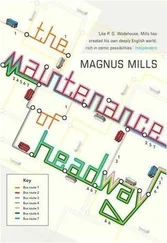The next person to surface was Isabella, and when she headed directly towards the new tents I fully expected her to join the fray. I knew from experience that she could be a fierce opponent, so I braced myself for a pitched battle. This morning, however, Isabella was cool, calm and collected; moreover, she made every attempt to resolve the impasse. For the last five minutes, Thomas had been laying down the law and getting nowhere. Isabella’s approach was entirely different. She greeted Horsefall and Griep with a smile and a handshake, then listened politely as they presented their case. Again, of course, I had no idea exactly what was being said, but eventually some sort of accord was reached and the two parties went their separate ways. Whether it was settled to Thomas’s satisfaction remained obscure, but at least the situation was no longer critical. One thing was certain: for the moment, he was going to have to learn to live amongst his neighbours.
By contrast, I would soon have no neighbours at all! With unbridled glee I carried my equipment to the remote north-west and set up a brand-new camp. Just as Hartopp had described, it was wild and windswept. It was also thrillingly empty. I chose a piece of ground and pitched my tent facing down the field. The south-east lay partially lost from sight beyond the turf wall, but otherwise I could see all that was going on without getting involved. It was perfect, and I kept asking myself why I hadn’t made the move before.
Not until hours later did the answer occur to me. I was sitting alone by my tent and I had nobody to talk to, not even Hen. All across the field I could hear the faint ebb and flow of faraway conversations, but I was unable to join in with any of them. Apart from gazing at distant tents I hadn’t really got enough to keep me occupied, and I was already beginning to regret my decision. Even so, there was no question of going back. My pride wouldn’t allow such a reversal; therefore, I simply had to make the best of my new-found solitude.
As the afternoon dragged on I watched the shadows slowly lengthen, and after a while I realized I had a visitor. Plodding over the northern slope came Brigant.
‘So,’ he said, when he drew near, ‘you’ve beaten Hogust to it.’
‘Yes,’ I replied, ‘I suppose I have.’
‘He proposes to move here at the first opportunity.’
‘Really?’
‘So he says.’
‘Is he planning to sail round?’ I enquired. ‘Or haul his boats overland?’
‘Not sure,’ said Brigant. ‘He hasn’t gone into the details.’
This last comment came as no surprise whatsoever. The reason Hogust hadn’t gone into the details was most likely because he had no intention of moving. It was all a sham. Hogust was an accomplished practitioner of rumour and speculation, and I had no doubt that he was up to some mischief or other. Still, it was nice of Brigant to bring me the latest gossip.
If only he’d waited a little longer, he would have had some proper news to tell me: news which in itself was fairly minor, yet which signalled the beginning of a gradual change in the Great Field.
It so happened that I witnessed the event without even knowing it. During the afternoon I’d spotted a lone sail moving down the river in the east, but I’d scarcely paid it any attention. I’d merely assumed it was one of Hogust’s vessels on a trial run. It transpired, however, that Hollis had defied his father, borrowed a boat, and headed southward. He’d gone ashore at Isabella’s former landing place and set up camp nearby. I only learnt all this the next day, and by then Hollis had been joined by his brother Eldred in a second boat. Naturally, Hartopp was thunderstruck, yet he was determined not to interfere.
‘They’re old enough to make up their own minds,’ he told me, when I called on him later. ‘It’s their choice.’
‘I’m astonished they went south,’ I said. ‘If they were seeking uncharted territory they should have made for the north-west.’
‘That’s what I’d have expected,’ replied Hartopp, ‘but their tastes have become more refined.’
‘Oh yes?’
‘It seems they prefer madding crowds to wide open spaces.’
‘But not their own madding crowds.’
‘No,’ said Hartopp, ‘that would have been far too easy.’
He was plainly disheartened. He didn’t utter the word ‘betrayal’, but he might just as well have.
To keep his mind off his many worries, Hartopp sought solace in hard work. With my assistance, he pulled his remaining boat further inland and made it secure; then he spent the afternoon clearing the rest of the nettles. I would have helped with this task as well, but there was no need. Hartopp produced a scythe from his tool store, sharpened it, and slashed relentlessly at the nettles until they all lay flat on the ground.
At the height of the operation, Hogust came sauntering along the river bank, having evidently heard the news of Hollis’s flight. He observed Hartopp for some moments; then he said, ‘I bet you wish you’d let me have the boats now, don’t you?’
Hartopp ceased work and gave Hogust a devastating look.
‘No,’ he replied at length. ‘I wish I’d scuppered them instead.’
Hogust said nothing more, and with a furrowed brow went wandering back the way he’d come.
Hollis and Eldred weren’t the only new arrivals in the south. Over successive days, an assorted collection of stragglers, camp-followers, pedlars and importuners appeared at the crossing in dribs and drabs. Some of them found places for their tents amongst Horsefall’s and Griep’s; others settled on the periphery, while still others colonized the river bank. I heard of these developments via second-hand reports, mainly from Brigant. He took a great delight in relating the goings-on beyond the turf wall, especially the fact that Thomas was being slowly encircled by the incomers. Apparently, the shimmering white tent looked as if it was under siege.
‘Serves him right,’ Brigant remarked. ‘He acts as if the whole world revolves around him, but in truth he’s a mere pageant.’
‘Yes,’ I said. ‘I couldn’t agree more.’
‘The way he carries on, anybody would think his tent was lined with cloth of gold!’
Brigant didn’t mention how Isabella was faring in all this; perhaps he didn’t know. It occurred to me that she’d probably been obliged to abandon her daily swim in the river. With all those people roaming everywhere, I imagined it was no longer possible to drift undisturbed in the dappled seclusion of the reed beds. Besides, the weather would soon be unsuitable for outdoor bathing. As each day passed, the clouds thickened and the breeze rose a little. There’d still been no rain as yet, but it couldn’t be very far off.
The advent of the long, autumnal evenings coincided with another change too: it emerged that a nightly curfew had been imposed in the lower field. At ten o’clock exactly, all the lights were extinguished and the residents fell silent. Not everyone slept, however. Throughout the hours of darkness, shadowy figures could be seen patrolling the walkways between the tents, presumably ensuring that all was well. The keepers of the watch were no doubt Horsefall’s men, and I wondered what was the purpose of the curfew. Quite possibly it had been arranged for Isabella’s sole benefit, so that she could enjoy her slumbers uninterrupted. If so, then her influence was plainly in the ascendancy. On the other hand, the curfew might simply have been a device for maintaining law and order. This was the more likely explanation, and it was a source of profound satisfaction for the northerners, since they were free from such restrictions. Indeed, the idea of Hogust being subject to a curfew was unthinkable.
Meanwhile, the wave of migration continued apace. Fully laden boats started to appear from further upriver, and without exception they by-passed the north-eastern settlements. Instead, they headed directly for a landing stage which had recently been constructed by Hollis and Eldred. Word quickly came back to us that the pair were charging a modest fee for this service. As far as I knew it was the first occasion any kind of toll had been levied in the Great Field, and they were reputedly reaping a handsome profit from their venture. Hartopp made no comment when he heard the news, so it was hard to tell whether he was proud of his sons for their initiative, or disappointed at their blatant opportunism. Either way, the enterprise was a veritable sign of the times.
Читать дальше












